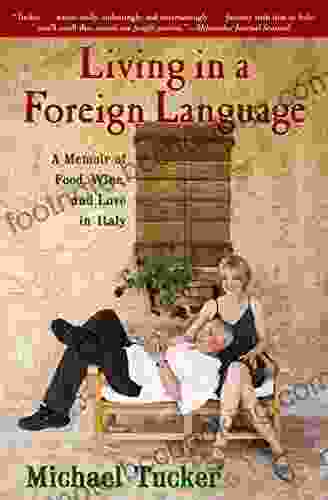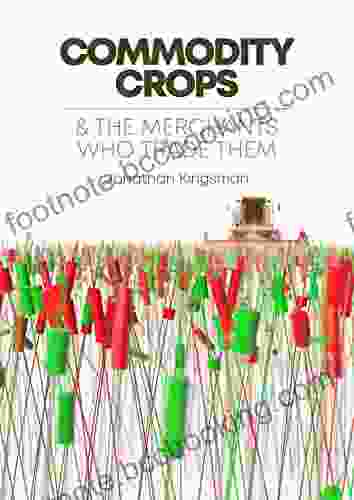Commodity Crops and the Merchants Who Trade Them: Unraveling the Global Food System

The global food system is a complex and interconnected web that involves the production, processing, distribution, and consumption of food products. A crucial component of this system is the trade of commodity crops, which are agricultural products that are standardized and traded in large volumes on international markets. In his book, "Commodity Crops and the Merchants Who Trade Them," author Robert L. Paarlberg explores the history, practices, and impacts of commodity crop trade, shedding light on the role of merchants in shaping the global food system.
The origins of commodity crop trade can be traced back to the era of European colonialism. As European powers established colonies around the world, they introduced new crops and agricultural practices that were adapted to the local conditions. These crops, such as sugar, cotton, and coffee, were grown in large quantities and exported to Europe, where they became essential commodities.
4.6 out of 5
| Language | : | English |
| File size | : | 4770 KB |
| Text-to-Speech | : | Enabled |
| Screen Reader | : | Supported |
| Enhanced typesetting | : | Enabled |
| Word Wise | : | Enabled |
| Print length | : | 324 pages |
| Lending | : | Enabled |
Over time, a network of merchants emerged to facilitate the trade of these commodities. These merchants played a central role in connecting producers in the colonies with consumers in Europe and other parts of the world. They organized the transportation, storage, and distribution of crops, and they established market mechanisms to determine prices and ensure a steady supply.
The development of commodity crop trade had a profound impact on agricultural production in the colonies. As the demand for these crops grew, farmers were incentivized to specialize in their cultivation. This led to the conversion of vast tracts of land to monoculture, where a single crop was grown on a large scale.
The of commodity crops also brought new technologies and practices to the colonies. Merchants provided farmers with access to improved seeds, fertilizers, and agricultural equipment. They also disseminated knowledge about crop cultivation and pest control. These factors contributed to increased productivity and reduced production costs.
In the 19th and 20th centuries, commodity crop trade expanded rapidly, becoming a truly global phenomenon. The development of steamships and railroads facilitated the transportation of large quantities of crops over long distances. The establishment of international organizations, such as the International Coffee Organization and the World Bank, helped to standardize regulations and promote trade.
As a result of globalization, commodity crops became a major source of income for many developing countries. Countries such as Brazil, Indonesia, and Colombia became major exporters of coffee, palm oil, and bananas, respectively. The trade of these crops helped to drive economic development and social change in these countries.
In the 21st century, commodity crop trade remains a critical component of the global food system. However, the role of merchants has evolved over time. Today, merchants are not just passive intermediaries; they are active players who influence the production, marketing, and distribution of crops.
Modern-day merchants have access to sophisticated technologies and market intelligence. They use this information to track supply and demand, anticipate price fluctuations, and develop strategies to maximize their profits. They also invest in research and development to improve crop yields and reduce costs.
The trade of commodity crops has not been without its controversies and challenges. One major concern is the environmental impact of monoculture. The cultivation of a single crop over large areas can lead to soil erosion, depletion of water resources, and loss of biodiversity.
Another issue is the exploitation of farmers in the developing world. Commodity prices are often volatile, and farmers can be at the mercy of merchants who set prices. In addition, some merchants are accused of engaging in unethical practices, such as exploiting child labor or paying below-fair wages.
Commodity crops and the merchants who trade them play a pivotal role in the global food system. The trade of these crops has shaped agricultural practices around the world, driven economic development, and fostered globalization. However, the trade of commodity crops also presents challenges, including environmental degradation and the exploitation of farmers.
Robert L. Paarlberg's book, "Commodity Crops and the Merchants Who Trade Them," provides a comprehensive and insightful exploration of this complex topic. The book examines the history, practices, and impacts of commodity crop trade, and it highlights the role of merchants in shaping the global food system. By understanding the dynamics of commodity crop trade, we can make informed decisions about how to create a more sustainable and equitable food system for the future.
4.6 out of 5
| Language | : | English |
| File size | : | 4770 KB |
| Text-to-Speech | : | Enabled |
| Screen Reader | : | Supported |
| Enhanced typesetting | : | Enabled |
| Word Wise | : | Enabled |
| Print length | : | 324 pages |
| Lending | : | Enabled |
Do you want to contribute by writing guest posts on this blog?
Please contact us and send us a resume of previous articles that you have written.
 Book
Book Novel
Novel Page
Page Chapter
Chapter Text
Text Story
Story Genre
Genre Reader
Reader Library
Library Paperback
Paperback E-book
E-book Magazine
Magazine Newspaper
Newspaper Paragraph
Paragraph Sentence
Sentence Bookmark
Bookmark Shelf
Shelf Glossary
Glossary Bibliography
Bibliography Foreword
Foreword Preface
Preface Synopsis
Synopsis Annotation
Annotation Footnote
Footnote Manuscript
Manuscript Scroll
Scroll Codex
Codex Tome
Tome Bestseller
Bestseller Classics
Classics Library card
Library card Narrative
Narrative Biography
Biography Autobiography
Autobiography Memoir
Memoir Reference
Reference Encyclopedia
Encyclopedia Stephen Kirkpatrick
Stephen Kirkpatrick L S Barnes
L S Barnes Bill Buford
Bill Buford Sandra Steingraber
Sandra Steingraber Paula Davis
Paula Davis J F James
J F James Sebastian Girner
Sebastian Girner Tom Hull
Tom Hull Terry Hill
Terry Hill Frank E Harrell Jr
Frank E Harrell Jr Rehan Haider
Rehan Haider Frankie Taylor
Frankie Taylor Sam Newman
Sam Newman John Freely
John Freely Roger Gordon
Roger Gordon Frankie Calkins
Frankie Calkins James Jones
James Jones Rebekah Gregory
Rebekah Gregory Joseph Doddridge
Joseph Doddridge Valerie Taylor
Valerie Taylor
Light bulbAdvertise smarter! Our strategic ad space ensures maximum exposure. Reserve your spot today!
 Chandler WardFollow ·19.1k
Chandler WardFollow ·19.1k Guy PowellFollow ·3.3k
Guy PowellFollow ·3.3k Jett PowellFollow ·17.5k
Jett PowellFollow ·17.5k Edwin BlairFollow ·19.2k
Edwin BlairFollow ·19.2k Brett SimmonsFollow ·13.8k
Brett SimmonsFollow ·13.8k Ernest PowellFollow ·14.7k
Ernest PowellFollow ·14.7k Jorge Luis BorgesFollow ·4.4k
Jorge Luis BorgesFollow ·4.4k Owen SimmonsFollow ·12.8k
Owen SimmonsFollow ·12.8k

 Howard Blair
Howard BlairHeroes and Villains from American History: The Biography...
David Dixon...

 Felipe Blair
Felipe BlairAn Informal History of the 1920s: Uncovering the Roaring...
The 1920s, an era...

 Howard Blair
Howard BlairHow a Peculiar Victorian Zookeeper Waged a Lonely Crusade...
In the enigmatic world of Victorian...

 Harold Powell
Harold PowellMemoir of Food, Wine, and Love in Italy: A Culinary...
Prepare your senses...
4.6 out of 5
| Language | : | English |
| File size | : | 4770 KB |
| Text-to-Speech | : | Enabled |
| Screen Reader | : | Supported |
| Enhanced typesetting | : | Enabled |
| Word Wise | : | Enabled |
| Print length | : | 324 pages |
| Lending | : | Enabled |
















